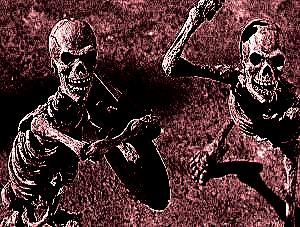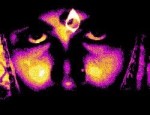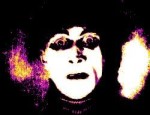Film Review
A triumph of pre-computer special effects,
Jason and the Argonauts continues
to impress with its spectacular effects wizardry which brings to life
one of the most fabulous of Greek legends.
The film features some of effects designer Ray Harryhausen's best work, the inspiration for a
generation of workers in this field. Harryhausen's realisation of the
mythical monstrosities in this film, achieved through painstaking
stop-motion animation, rivals anything that can be achieved with
today's more sophisticated CGI effects, and his creations have a
physical presence on the screen which the latter still haven't quite
matched.
Extraordinarily for a film of this era, the synthesis of model shots and
live action film is virtually seamless, and what imperfections there
are enhance rather than detract from the film's dreamlike charm.
Of course there is more to this film than just its effects - it tells a
gripping story that, whilst not an entirely accurate representation of
the Greek myth, is superbly realised by a cast and crew who achieve
miracles on a relatively modest budget. This is indeed a rare
thing, a timeless classic with a universal appeal, immensely satisfying
for both children and adults.
The thrilling set-piece in which Jason and his crew fight a battle to
the death against warrior skeletons (just
how do you kill a skeleton?)
remains one of the most famous and most highly regarded effects
sequences in film history.
Harryhausen began his career as an
apprentice to the Hollywood effects guru Willis O'Brien - the man who
brought us the original
King Kong - and would perfect
the art of stop-motion animation in a series of classic films,
including
The 7th
Voyage of Sinbad (1958),
One Million Years B.C. (1966) and
Clash of the Titans
(1981).
Jason and the Argonauts.is his
enduring masterpiece, a piece of pure cinema magic.
© James Travers 2009
The above content is owned by frenchfilms.org and must not be copied.
Film Synopsis
In ancient Greece, Aristo, the benevolent King of Thessaly, is
overthrown by his rival, Pelias, but a prophesy foretells that one day
Aristo's son Jason will return to reclaim the throne. Years
later, Pelias is saved from drowning by a young man whom he recognises
as Aristo's son. Fearful that if he kills his nemesis he too will
die, Pelias encourages Jason in his quest to find the fabled golden
fleece, which is believed to hang on a tree on an island at the end of
the world. Jason knows that if he finds the fleece, which is
invested with magical powers, the people will turn against Pelias and
make him their king. A ship is constructed, the Argo, crewed by
the greatest athletes in Greece, and soon Jason has embarked on his
quest. The goddess Hera speaks to him through the ship's
figurehead, but warns him that she can only help him five times.
Once the Argonauts' supply of food and water is exhausted, Hera guides
the ship to the Isle of Bronze, but warns Jason they must take nothing
but provisions. Whilst exploring the island, two of the crew,
Hercules and Hylas, discover a collection of titanic bronze
statues. In the chamber beneath one of the statues, they find
fabulous jewels. When Hercules attempts to steal some of these
treasures, the gigantic statue comes life and goes on the rampage,
intent on destroying the Argonauts and their ship. With Hera's
help, Jason defeats the homicidal statue, but he realises this is the
last time that the goddess can come to his aid. Many perils
still have to be faced before he can find the golden fleece, including
vicious harpies, the multi-headed hydra and an army of warrior
skeletons. And Jason does not yet know that one of his crew is
Pelias's son, sent to ensure that he never returns to Thessaly...
© James Travers
The above content is owned by frenchfilms.org and must not be copied.



